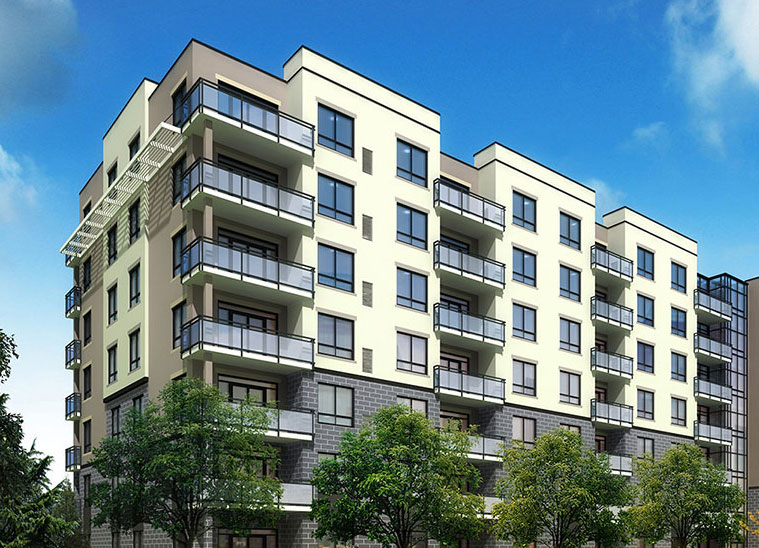Emerging from a stagnant economy after political turmoil, Kenya’s real estate industry is set to boom once again in 2019 from the growing middle class, rapid urbanization which is currently at 4.3% per annum against global averages of 2.0% coupled with other demographic trends.
For real estate agents and developers to succeed, they must embrace a multi-phased approach including consumer preferences of online platforms like BuyRentKenya.com, being responsive to market changes in pricing, commoditise high-value areas with a vertical building approach, and aligning with the President’s affordable housing projects.
1.Consumer Preference to Online Platforms
Market insights from BuyRentKenya.com, which has bagged several Real Estate Awards , show that 68% of property seekers use their mobile device to search for property online. This eliminates the tedious process of scouting for property, contacting brokers and owners and constantly making frequent visits to view the property to avoid getting scammed.
Consumers want to see listings with detailed descriptions, different price options, and also want to have someone who will answer all their questions without having to physically visit the property. Agents and developers need to embrace this modern way of consumers searching for property by working with real estate portals to post listings online which will be available to anyone and everyone.
Because the internet has consumers with different purchasing powers, agents and developers who post their listings on property portals such as BuyRentKenya.com will reach a wider target audience by providing both low and high-end property options. This will cause a shift in the demand and supply curve by focusing on areas where demand for property is high and giving consumers what they want.
2.Pricing Changes in the Market
Over the past three years, there have been changes in market prices. BuyRentKenya.com’s market predictions are based on pricing shifts, economic key drivers, and real estate trends.
Largely, there is an increase in the demand and supply of townhouses in the satellite towns such as Kitengela judging by the 3% increase in the rental price of an apartment and an 11% price increase from people buying townhouses in the same area.
This increase is attributed to infrastructural improvements making it easier for commuting to Nairobi while spending less on property respective to Nairobi properties.
Apartment prices are set to increase in high-demand areas such as Westlands and Lavington from the growth of consumers earning a higher income and wanting to live close to the city centre. These areas are also attracting the expatriate community through available amenities, location, and proximity to conference centres.
3.Developers Using the Vertical Building Approach
Land to develop in Nairobi is scarce, that’s why there is a price hike in the value of existing land. Accordingly, satellite towns such as Ruiru, Kitengela and Athi River are growing with more people looking for townhouses. In areas such as Westlands and Parklands, the rental prices of townhouses have gone up by 17% and 11% respectively over the past 3 years. This is different for apartments in the same areas where there have been nominal changes in the rental price.
Developers should consider building vertically and leverage on air rights as mentioned on BuyRentKenya.com’s Kilimani Neighbourhood Guide (https://bit.ly/2CYubBX). By demolishing old houses and building apartment blocks on the same land, developers can maximise the return on high-demand property.
Building vertically is the solution to meet the needs of people who can’t afford to relocate to satellite towns and want to live in Nairobi due to easier access to social amenities such as healthcare services, restaurants, schools, shopping malls and many more.
4.Affordable Housing Project
BuyRentKenya’s pricing review (https://bit.ly/2VodQOj) will help property seekers and investors make informed decisions to get better returns on their investments. However, there are external factors which will impact the prices of property in Kenya such as the President’s initiative to provide affordable housing to Kenyans through the “Big Four Agenda”.
According to BuyRentKenya.com’s CEO Lizzie Costabir, the affordable housing project will have a positive effect in other areas such as the cement industry which will force suppliers and contractors to reduce construction costs. There will also be an increase in foreign direct investment (FDI).
This she says, “…has continually brought about an increase in urbanisation and subsequently increased property demand”.
A major challenge that developers and real estate agents experience is targeting the right people to see and occupy the property. On the other hand, property seekers struggle to find property within their price range.
Online property marketplaces such as BuyRentKenya.com continues to connect property seekers to agents and developers causing a shift in the supply and demand curve. These four key changes will propel the growth of the property industry for developers, estate agents, and property seekers.
SOURCE: 

